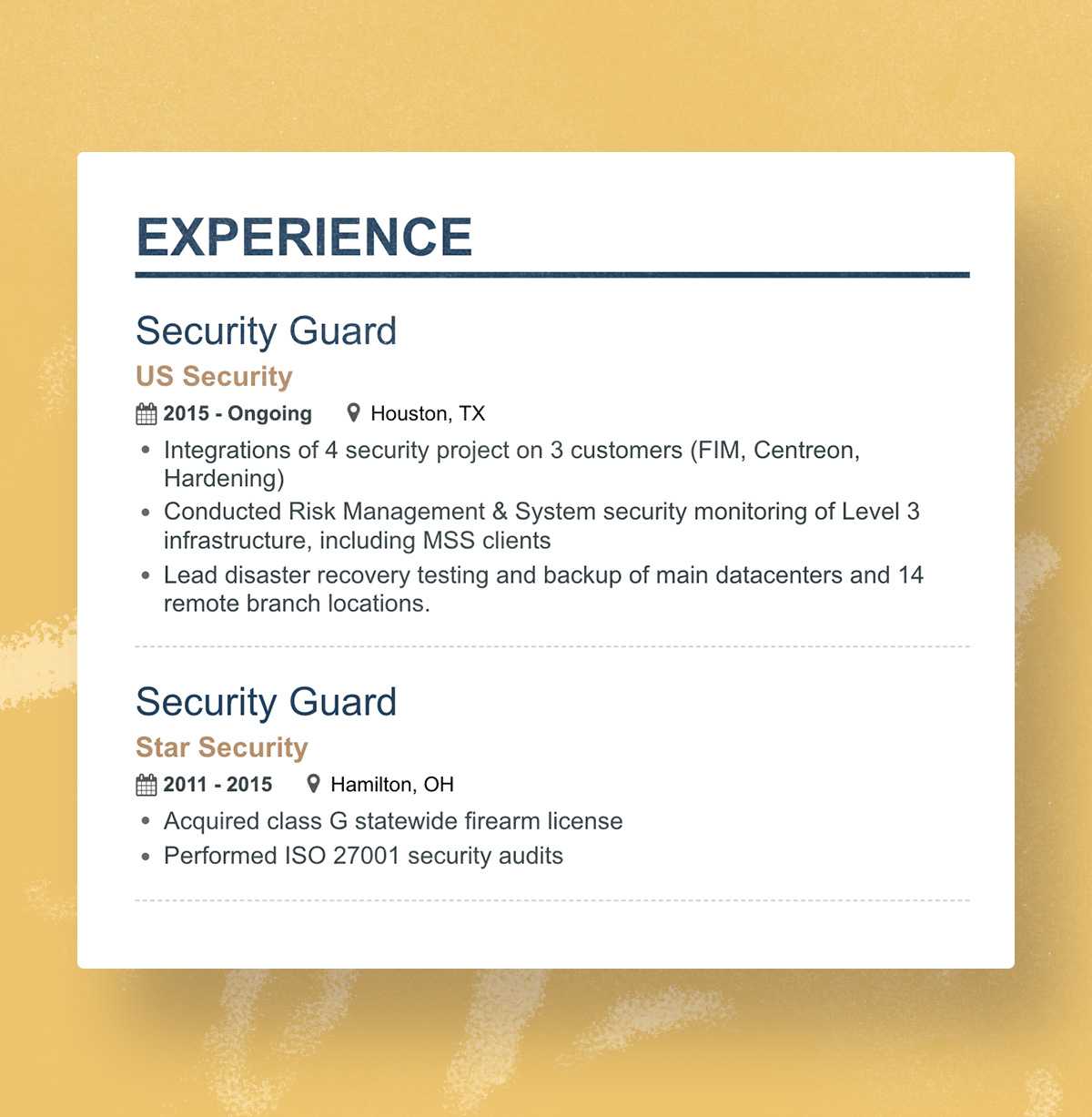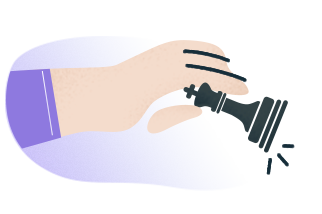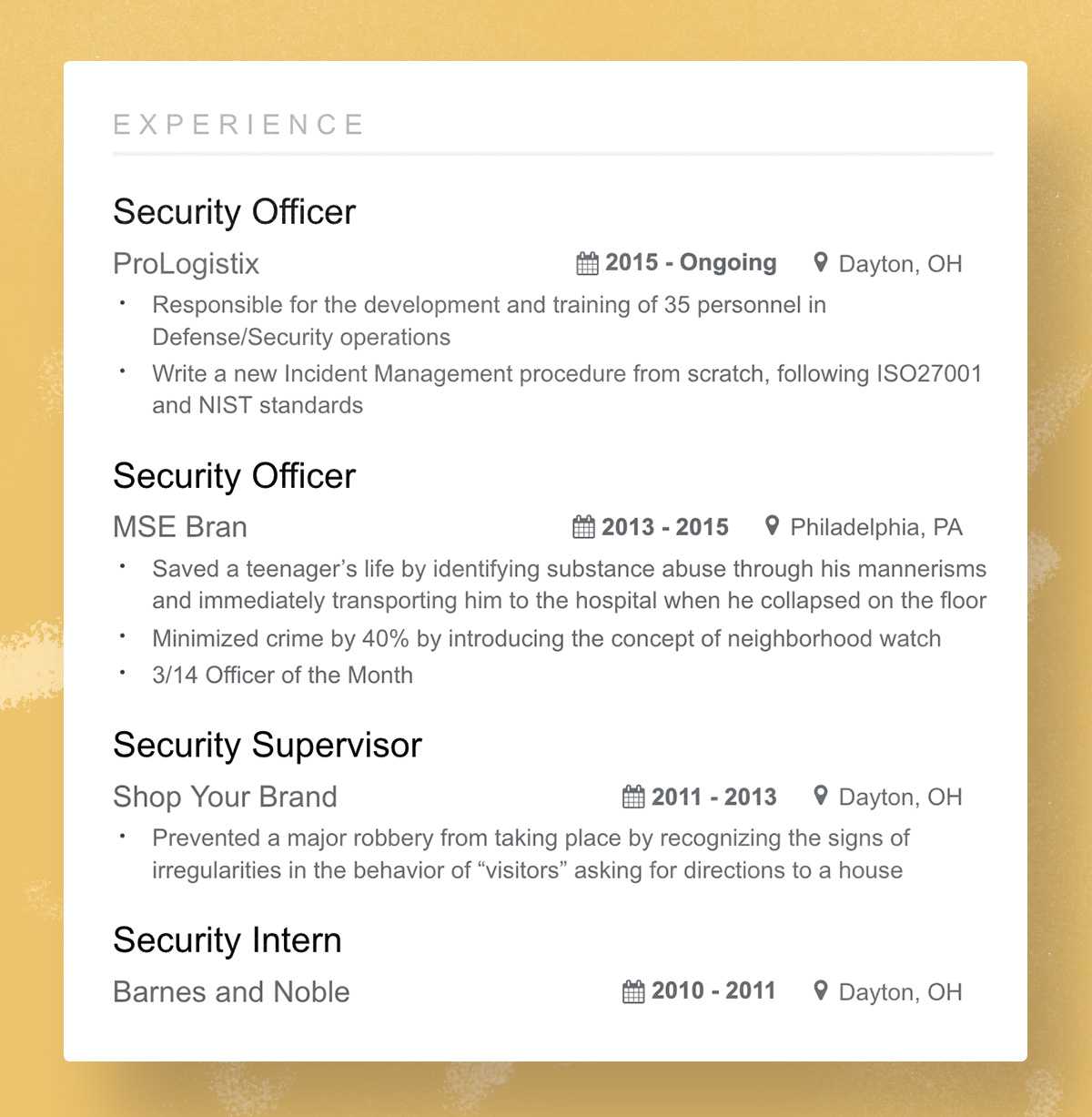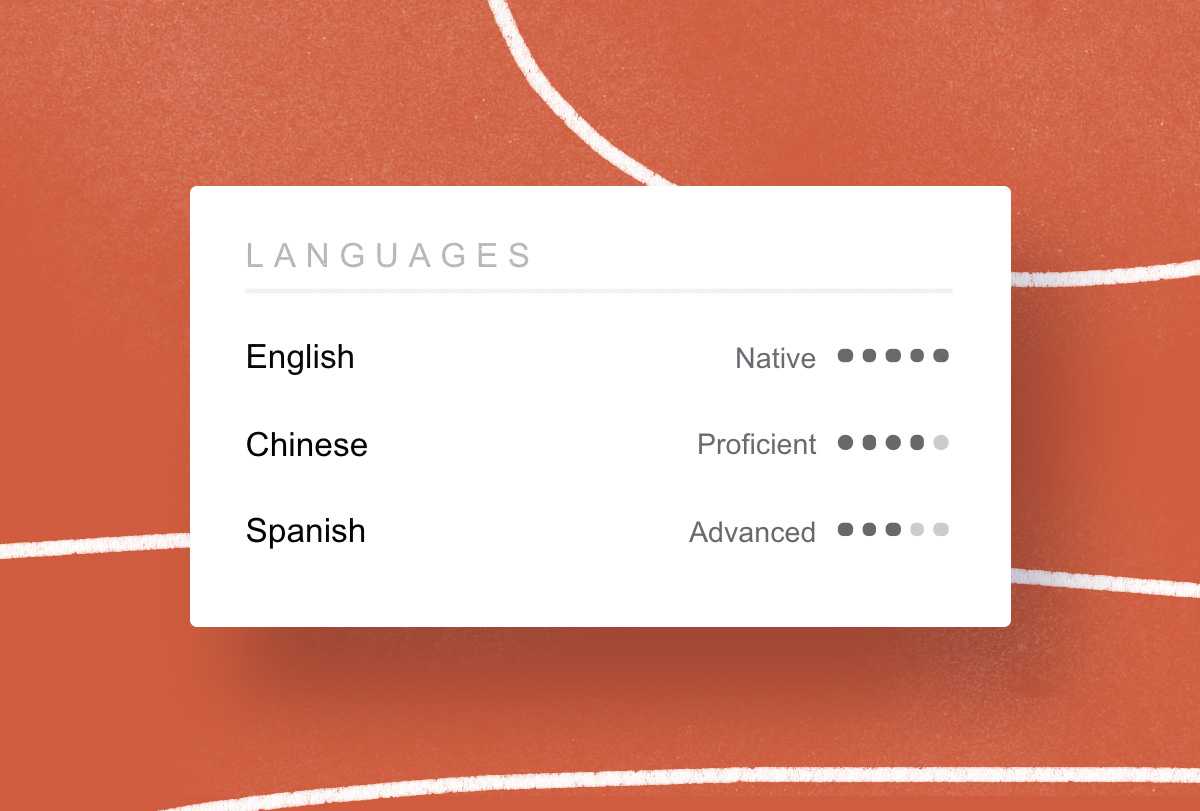The Ultimate 2022 guide for Law Enforcement & Emergency Services Resume Examples [Expert samples from over 100,000 users]
Top 6 ideas to create the law enforcement & emergency services resume:
- Tailor your resume for the exact person and organization who will evaluate it
- Pay particular attention to the culture of the organization and try to show why you’ll be a valuable addition to it
- Make sure your resume demonstrated why you’re perfect for the exact job you’re applying for
- Make sure your resume is the right length
- Be specific about your accomplishments, use numbers whenever you can
- Try to get and include referrals if possible
Start your resume now for FREE. It’s easy!
Why not build a free resume with Enhancv as you go! It takes 2 mins to get started.
Start now for free!No credit card required
How to write a law enforcement & emergency services resume
Always start with the job description
This is a core step that most job applicants across various industries miss. Your resume should not be designed to present you as a person to an employer. Instead, it should present you as a candidate for a specific job. The difference may seem subtle, but it has a big impact. Consider how each element of your resume addresses the skills and qualities asked for in the job description. Your goal is to present yourself as just the person they were looking for.
Next, consider the place you’re applying to
Considering the organization itself is a natural extension of focusing on the job description. Try to find ways to meet people who work at the specific precinct, station, company, etc. and get a feel for its culture, values, and what you might be able to add. Armed with that information, you can emphasize your level-headedness, familiarity with particular doctrines, or background in a way which makes you a particularly good fit.
Show, don’t tell
Anyone working in law enforcement or emergency services will be very familiar with the difference between talk and action. Well, the same applies to resumes. The person reading your resume isn’t likely to be impressed when you say that you work well under pressure. What’s going to leave a strong impression is the inclusion of a story which demonstrates that quality.
Critically analyze every detail
Perhaps the most commonly asked resume question of them all (regardless of profession) is “how long should my resume be?” There’s honestly no silver bullet here because it comes down to the preferences of the person reading your resume. One person might be happy to learn more about you while another might be annoyed at having to take the time to read another page.
That’s why the more important thing to keep in mind is that every detail on your resume should add value to it. So look at everything you’ve included and ask yourself, “does this make my resume better?”
6 sections recruiters and hiring managers look for in a law enforcement & emergency services resume
1. A short bio
This is a simple and straightforward way to explain who you are and what the goal of your resume is. Just a few words to a sentence under your name can have a big impact. How? It frames the rest of your resume, giving context through which the reader can understand all of your experience and qualities. That’s why it makes sense to make sure you get your bio (or header) right.
2. A strengths section
This section is a real double edged sword. Done well, it can clearly demonstrate that you have the exact skills and traits they’re looking for in a new hire. Done poorly and it shows only that you can throw around buzzwords without backing them up. That’s why the most effective way to create this section is to mix simple statements with more detailed explanations underneath.
3. An experience section
Contrary to what most job applicants think, simply saying that you had a job and stating what your responsibilities were doesn’t cut it here. You need to focus on the impact (preferably measurable) that you had. But beyond that, you should demonstrate how your experience makes you a good candidate for the specific job you’re applying to. So consider how you can emphasize those qualities in your previous work experience even if it wasn’t in law enforcement or emergency services.
Start your resume now for FREE. It’s easy!
Why not build a free resume with Enhancv as you go! It takes 2 mins to get started.
Start now for free!No credit card required
4. Your languages
Helping people who may not speak perfect English is a daily reality for most people working in law enforcement or emergency services. That’s why including any languages you speak (even at a basic level) will make your resume more impactful. Plus, speaking multiple languages says great things about your intelligence, increasing your chances of getting hired.
5. Your certifications
Obviously, these are central for anyone applying to a law enforcement or emergency services position. Whether it’s CPR, firearms training, or de-escalation training, showing that you’re certified in critical areas speaks volumes.
6. What you’re most proud of
Done well, the inclusion of a little personality cna add a lot to your resume. This could be something universal like being a parent or overcoming a challenge. However, it can also be another place to demonstrate you possess the qualities they’re looking for in an applicant. Perhaps none of your work experience shows you have a particular skill, well here you can bring it up in another context.
How to get a referral on LinkedIn for the Law Enforcement and Emergency Services role you want
In most cases, the most effective thing you can do to improve your chances of getting hired is to get referred to a position. Referred employees are hired 60% of the time compared to everyone else who make it to an interview just 2% of the time. Needless to say, investing in the kind of personal connections and networks you need to get such a referral is invaluable.
So before you start applying, be sure to check your 1st and 2nd degree contacts in both LinkedIn and in any other relevant groups you may belong to. If you don’t have strong connections in the industry you’re looking to establish yourself in, start making them now!
Check out our guide on getting referrals for any job you’re applying for.
Start your resume now for FREE. It’s easy!
Why not build a free resume with Enhancv as you go! It takes 2 mins to get started.
Start now for free!No credit card required
Get more inspiration
No spam, just information that will help you build a resume that makes you feel relevant and well represented.






